DJ and music producer Fat Tony is currently enjoying the continued success of his award-winning best-selling memoir, I Don’t Take Requests. A harrowing depiction of his addiction and recovery journey peppered with humor and vivid accounts of some of the most creative eras in fashion and music, the book catalogues Fat Tony’s travels, tribulations, and friendships with the likes of Boy George and Leigh Bowery. It also shares details about his drag performance as Dusty Springfield in a London Fashion Week show for the line Joseph in 1986.
Check out this newly surfaced clip of that moment:
View this post on Instagram
Style is like a secondary character throughout the memoir, with Fat Tony delving into fond recollections of what he and pals were wearing during their most debauched exploits in great detail (while other memories are expectedly fuzzy, if able to be conjured at all).
When describing the rise of the club night Kinky Gerlinky, Fat Tony recalls that “People were over drugs and back into fashion”, and name drops cult labels like BodyMap as readily as Vivienne Westwood and Versace. At one point in his book, Fat Tony spills about Donatella Versace shouting to him as he DJ’d a fete for the Italian brand: “Aiii, Fat Tony! No K, NO PLAY!!” –apparently a catch-phrase during his more wanton moments.
“There are certain dates I couldn’t remember what I was doing, but I could remember exactly what we were wearing,” Fat Tony says of why fashion is so integral to his life story’s plot. “That narrows [details] down, almost perfectly pinpointing a certain era or a certain time.”
In 2020, Fat Tony founded his own London-based label Arrogant Hypocrite; his partner, Stavros Agapiou, has since pushed the designs into streetwear territory as its Creative Director. We love the TNUC tee, which launched in June along with an assortment of casual looks. Musician Mnek and artist Tracey Emin are both fans of the brand.
On the music front, Fat Tony has been bopping around the U.K. and Europe playing gigs from intimate (like extended sets in the “Wild Room”, a dancefloor-meets-bathroom in the famed Hï Ibiza nightclub) to massive, like the Ministry of Pride event he played in July.
His devotion to lewks makes it obvious why Editor-in-Chief of British Vogue, Edward Enninful, asked Fat Tony to be Vogue’s resident DJ, and why he continues to be the name of choice for events thrown by the likes of Kate Moss.
We caught up with the DJ, producer and meme lord in between gigs to find out more about Arrogant Hypocrite, bringing back his bitch tracks, and why Ibiza still has his heart.
Read the full Q&A after the jump!
�
I see the words “arrogant hypocrite” tattooed on your hands—let’s start there.
I got them in early recovery. They’re words that kept coming up, like default settings that needs to be looked at.
How did those words evolve into a clothing label?
It started as a “lockdown brand”—sweatpants, hoodies and stuff like that. It kind of verged on merchandise more than anything. And then as life got busy, we kind of stopped doing it for a while. My partner, Stavros [Agapiou], sold his old shop in January, and he didn’t know what he wanted to do. I told him to take on Arrogant Hypocrite and re-launch it, and that’s what he’s done. We’re steering it away from being Fat Tony merch into being more of a streetwear brand. It’s very tongue-in-cheek and it’s much more stylish.
It seems like a good fit for you considering how much fashion plays a part in your book.
I’ve always liked to look the part and feel the part. Fashion does both of those things for you. I come from that world, and I lived in that world. As I’ve gotten older, I like to feel special and I think clothing has the ability to do that. It might sound superficial, but in my game, when you’re of a certain age like 57, you need to look the part. It’s important to have an identity and feel the best you can. When I started DJing, I was always with the fashion crowd—the people I grew up with have become the leaders of the industry, so it’s always been a really important thing in my life.
Music and fashion go hand in hand. They always have and always will. Without punk you wouldn’t have had Vivienne Westwood, and without Vivienne Westwood, you wouldn’t have punk. One thing I will say, though, is that fashion used to be tribe led, but in the last ten years, it became brand led. If I was to write this book and include this era, it would seem pretty mundane.
View this post on Instagram
I actually saw you DJ at party during London Fashion Week a few years ago, but most recently I saw you at Hï where you played during its Glitterbox party. Let’s talk about Ibiza, because it also features heavily in the book.
You were there for the six-hour set? Wow.
It was an intense experience and I guess I didn’t know what to expect; it was also my first time in Ibiza. How have you noticed it change over the years?
Small parts of it have stayed the same. The people obviously aren’t and the clubs have become very big and commercialized, but even within them you can find little pockets, like the Wild Corner at Hï, where I was playing. It’s a toilet area in the club. It gives you an impression of when Ibiza used to be smaller; now venues are so vast and you can get lost in them. Playing in that room is very intimate, and playing for six hours enables me to take people on a journey.
If you think about DJing for six hours, it’s a fucking nightmare, but it goes really quickly because I’m in the moment. Afterwards I’m exhausted, but that’s because of the amount of energy I’m giving back. I read that room, I take that energy and I transfer it back to you. It’s almost like a bird feeding its young.
The thing about Ibiza and many other places is that they grow and become really big, and some of it is beautiful, and some parts die away—the leaves come off, if you will—and then other “shoots” grow. It’s just an evolution. But that’s the magical thing about it. You can go to one club and think you’re not with your people and then you go to another venue and you find them.
What’s it like being a DJ in a post-lockdown world?
The weird thing is that people are filming something they’re never going to look at again. They’re doing it for social media. And I get that—I don’t get annoyed by people wanting to take pictures and have photos with me because it’s part of my job, and I’m very blessed to have people want to do that. But sometimes I want to say, okay you’ve got the shot—now put your phone down and enjoy yourself.
Let’s go back to the book; it’s quite incredible that you can read through a few pages and they’re so emotional and heavy, and then the next page you’re laughing to yourself.
I didn’t want someone to get to the end of a chapter and think it was too heavy to carry on reading. I wanted to turn it on its head so every chapter ended on a happier note.
Was there any hesitation or fear of people judging you after reading the book?
It took two-and-a-half years to write because I kept going back and changing things because they weren’t honest enough. After I handed it in, though, I was panicking and thinking, what have I done? Why have I told the world about my trauma? I would wake up at 2 AM thinking that my life was really good, why would I ruin it? I was worried about how people would perceive it. There are people who aren’t going to be accepting about it—all these things I’ve carried with me and haven’t spoken about. There was hesitation but I just had to go for it. If you’d said to me years ago that the minute you get honest is the moment you find freedom I would’ve laughed, but now I know it’s true. There are no skeletons in the closet anymore.
The acceptance from people around the book has been remarkable because I talk about things that affect everybody, but that people are afraid to talk about because they carry so much internalize shame, trauma, homophobia; all those things are brought to the table.
After going through the writing process and also by virtue of your recovery, do you feel more inclined to speak your mind about things?
You have to remember that if you’re giving to people you have to keep something for yourself; and I went through a phase of giving my all to people and was left “bankrupt”—my self-care went out the window. Now it’s about balance – whether it’s a meal, or my social life, or my way of thinking, if things go too much in one direction everything else slides and next thing you know, you’re drowning.
I love to spread the message of recovery, and why I’m in recovery, because I have no shame or stigma attached to it anymore. I am who I am, and the more open and honest I am about how I got clean and stay clean and how incredible my life is now is really important. For many years, not only homosexual people but addicts and alcoholics had to hide because society frowned upon them. So it’s important for someone that has a platform, like myself, to use that platform to the best of my ability. I don’t think I’m an activist, I’m just a person with morals. And that’s the difference—I lead by example.
I need to help other people get clean because that’s how I stay clean. If you’ve got a problem, talk about that fucking problem. Take power out of that problem. If you don’t open your mouth, you don’t get fed. It’s really important to open your mouth and verbalize it.
I’m curious if music has a different effect for you now that you’re clean?
I no longer listen to music, I feel it. For me, music’s the best drug you’ll ever experience. It has the ability to make me feel good about myself, but also to take me to a place where I want to feel sad and be in touch with my feelings.
Music’s such a gift, and for a long while I just used it as a tool to get what I wanted. But now I’m connected to it in a different way, and it gives me so much more. I’m forever thankful that I’m allowed to do the job that I do.
What are you excited about in terms of the music industry right now?
There are so many young producers and young kids out there making music because it’s easy for them to make it now. That excites me more than anything. They’re not doing it to make money because they’re not going to—they’re doing it because they love it.
It must make you think back to when you were doing bitch tracks and songs that were very DIY in their energy.
I’m back in the studio now and doing that at the moment, actually. I did a track with Jack Mizrahi, who worked on Pose, and it’s very reminiscent of those bitch tracks. It’s called “You Can’t Come for Me.” It’s a whole new level of excitement for me.
And it’s a different creative outlet for you, too.
A hundred per cent. And that’s come from being in a better place—before I would’ve been afraid about what people would say or think. But now I don’t give a fuck as long as I believe in what I’m doing. That’s all that matters.
—Q&A by Odessa Paloma Parker (@odessapaloma)

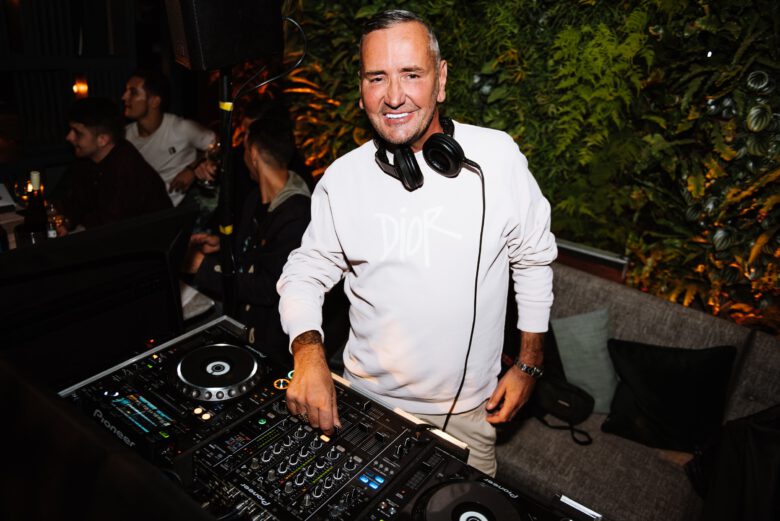
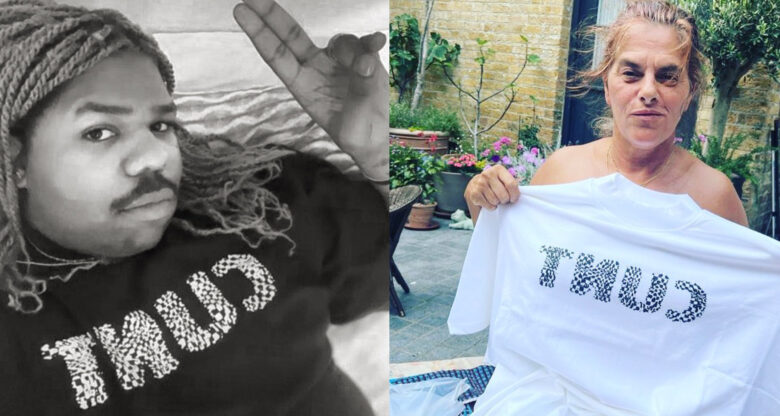
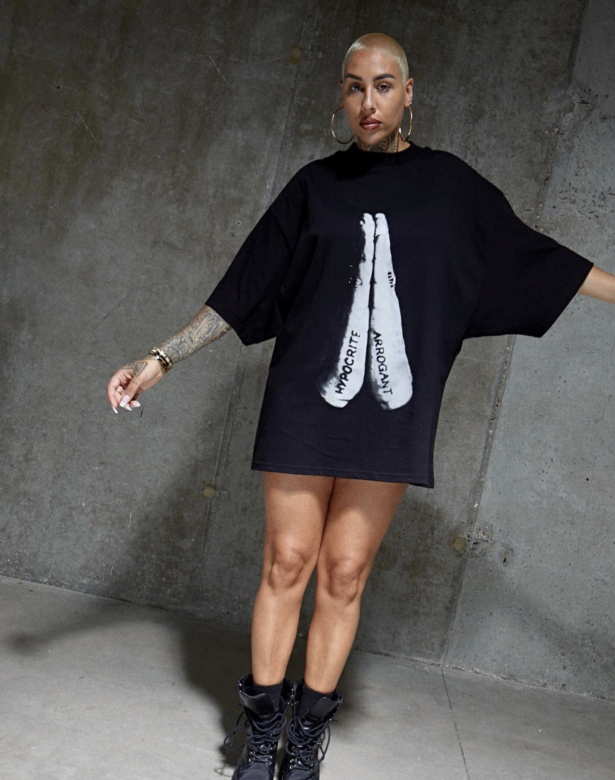
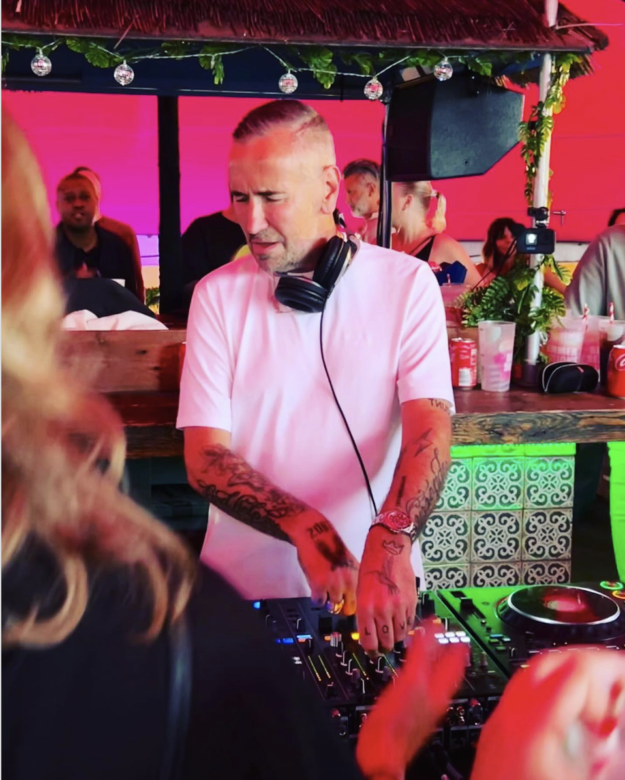
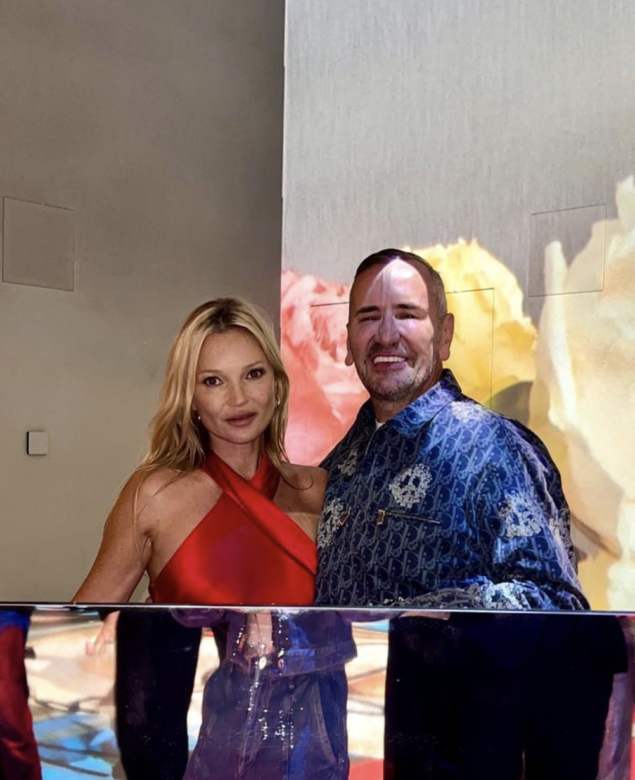
Be the first to comment on "OMG, a Q&A with DJ Fat Tony"